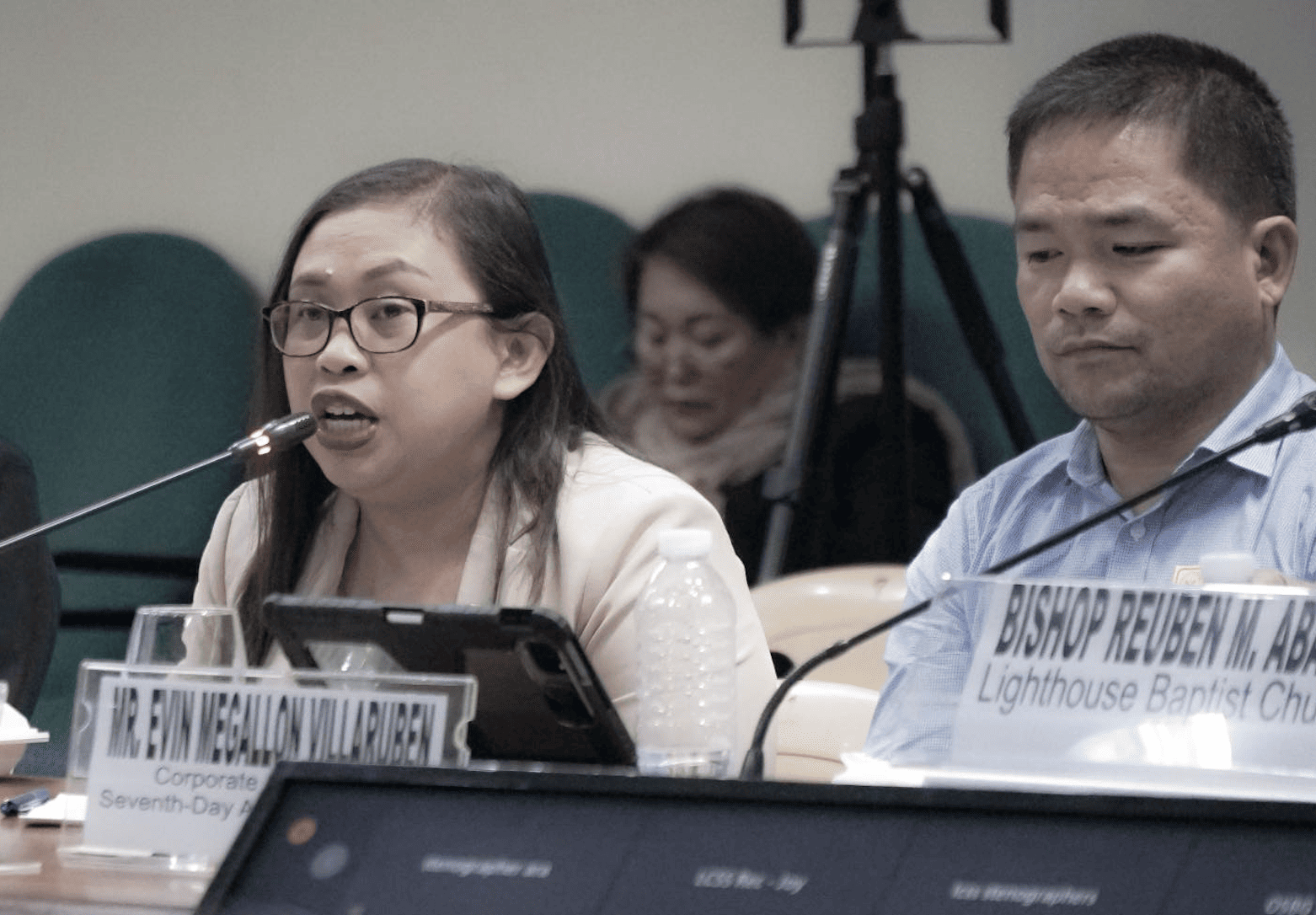
Representatives of the Southern Asia-Pacific Division of the Seventh-day Adventist Church (SSD) attended an August 1 Senate of the Philippines hearing on the government’s proposed “Magna Carta on Religious Freedom Act.”
The bill seeks to defend the people’s right to religious freedom in the country, as provided by Section 5, Article III of the 1987 Constitution. The Adventist Church was represented by Evin Villaruben, SSD assistant treasurer and corporate secretary, and legal counsel Gizelle Lou Cabahug-Fugoso.
The bill is both significant and concerning to the Adventist Church’s Public Affairs and Religious Liberty (PARL) department, church leaders said. Religious freedom is a major element in Adventist views, since it defends the idea of liberty of conscience and free expression of faith for all individuals. Such freedom should not be denied, burdened, regulated, or restricted unless it causes violence, hurt, or danger to others or infringes on others’ religious rights. The measure’s goal of protecting public safety, order, health, property, and morals is consistent with the church’s commitment to responsible citizenship and social responsibility.
Cabahug-Fugoso expressed concerns about the challenges Adventist church members have faced in balancing their education and job obligations. The major issue is the clash between the biblical Sabbath — Saturday — that Adventists observe, and mandatory attendance at classes or work on that day. Cabahug-Fugoso shared the recent case of Denmark Valmores, an Adventist medical student, in which the country’s Supreme Court ruled that requiring a student to choose between honoring his religious obligations and finishing his education is a patent infringement of his religious freedoms.
The Commission of Higher Education and the Department of Labor of the Philippines recently affirmed its commitment in upholding religious liberty in educational and employment contexts, church leaders reported.
Villaruben urged the government to maintain the autonomy of religious institutions. Together with other faith organizations, the Adventist Church wishes to add an amendment to the proposed Section 13 of the House Bill: “The State shall protect and promote the right of a person to equal opportunity and treatment, and non-discrimination in employment, by virtue of one’s religious affiliation or belief, provided that religious institutions that are founded on religious beliefs or tenets shall be entitled to their hiring standards or codes of behavior pursuant to their religious beliefs and disciplines,” he reported.
Regional church leaders said that the Adventist Church supports the proposed measure and wishes to thank the bill’s authors and the leaders of the Senate and the House of Representatives of the Philippines. “The Adventist Church has been proactive in creating beneficial collaborations with the government, in keeping with the goals of good governance and openness. And the church will continue to support and adhere to the government's aims and activities as long as they are consistent with biblical ideals,” they reported.
Representatives of the Adventist Church and other religious organizations will submit position papers and actively engage in upcoming collaborations to help generate a comprehensive and balanced Committee report. While the proposed measure is an important step toward guaranteeing religious freedom in the Philippines, regional church leaders said it will require careful review and discussion to strike a balance between protecting individual rights and preserving the separation of church and state.
The PARL department is part of the Adventist Church’s global effort to establish favorable conditions for sharing the good news of freedom and inviting all to loving fellowship with God and fellow human beings, church leaders explained. PARL also works proactively and tirelessly to erase misconceptions about the Adventist Church — including its identity, message, and mission — by interacting with people and offering distinct Adventist views. Essentially, the department aims to elevate the Adventist Church and its services to a position of public credibility, trust, and relevance, they said.
The original version of this story was posted on the Southern Asia-Pacific Division news site.